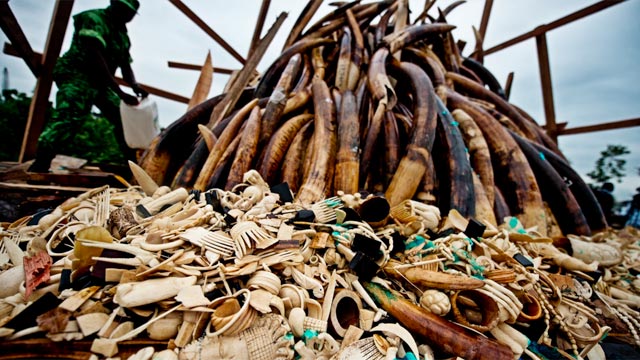Two House Bills Threaten Endangered Species Act
The Endangered Species Act (ESA) is one of America’s most successful pieces of bipartisan legislation. Under this act, the United States Fish & Wildlife Service cooperates with states, companies, and landowners to preserve and protect species in decline.
As a result of its cooperative nature, the ESA promotes a healthy, successful conservation relationship between the public and private sector where punishing landowners is rarely necessary. The act is responsible for saving numerous species from extinction, including magnificent and culturally important species such as the grizzly bear, whooping crane, and bald eagle.
Unfortunately, currently two bills in the U.S. House of Representatives, H.R. 2603 (SAVES Act) and H.R. 717 (the Listing Reform Act) threaten the ESA’s ability to protect endangered species.
The Listing Reform Act, proposed by Rep. Pete Olson (R-TX), removes rules that require the Department of Interior to prioritize conservation. As of now, the Secretary of the Interior is required to answer all petitions to add or remove a species within 12 months of their proposal. Also, only scientific considerations can be used in deciding whether a species receives protection or not. The Listing Reform Act removes both of these requirements, giving the Secretary of the Interior, currently Ryan Zinke, the ability to ignore petitions for new additions or reject them on the basis of economic factors over scientific ones. Considering Secretary Zinke’s record with endangered species and public lands, it is likely he will ignore controversial species such as the lesser prairie chicken, threatening them with extinction.
While the Listing Reform Act threatens the Fish & Wildlife Service’s ability to protect our Nation’s natural heritage, the SAVES Act, proposed by Representative Louis Gohmert (R-TX-1) threatens endangered wildlife worldwide. Its goal is “to amend the Endangered Species Act of 1973 to provide that nonnative species in the United States shall not be treated as endangered species or threatened species for purposes of that Act.”
While the Convention on the International Trade in Endangered Species of Wild Fauna and Flora (CITES) is administered by the United Nations and decides which species to ban in international trade, it is enforced by national laws. In the case of the United States, it is the Endangered Species Act. If this bill were to pass, it would remove foreign species from ESA protections, effectively legalizing the importation and sale of the body parts of endangered animals, including elephant tusks, pangolin scales, rhinoceros horns, and gorilla palms.
This act would also remove America’s ability to decide which animals it can import, delegating this authority to international groups. While one could make the argument that legalizing the sustainable harvest of some endangered species could promote more responsible use and encourage conservation via financial incentives, the instability and corruption of third-world governments make certifying sustainable use extremely difficult. The black market wildlife trade and poaching fund international criminal syndicates, promote regional instability, and fuel fanatical warlords like the Lord’s Resistance Army who commit barbaric violations of human rights. A law to fight black markets through legalization would need to be far more specific than the SAVES Act.
I urge you to write letters to your state representatives to make sure they vote against the Listing Reform Act, which threatens to our America’s glorious natural heritage, and the SAVES Act, which threatens wildlife populations around the world. If these bills pass through the House of Representatives, Senate, and are approved by the President, then I urge you to boycott any business which sells the body parts of wild endangered species.
We cannot let short-term greed damn our biological heritage.

Reginald Walden is a junior majoring in Marine Biology with a minor in Communications. He is a member of the Delta Alpha Pi Honor Society, Marine Biology...











Elizabeth Calvin • Sep 18, 2017 at 8:03 pm
These beautiful creatures need us to protect them for future generations to experience their majestic beauty
Michael wauschek • Sep 17, 2017 at 2:22 pm
We must protect
Stephanie Kurose • Sep 6, 2017 at 6:53 pm
Thank you for writing about such an important topic. I am a UNH alum (’12) and currently an endangered species policy specialist at the Center for Biological Diversity. You identified two harmful bills that would substantially weaken the ESA. In addition to these bills, there are currently over 40 pieces of legislation that have been introduced that either attack the Endangered Species Act or specific species. For example, there is currently multiple bills or policy riders that would prematurely delist gray wolves. Delisting is supposed to be based on the best available science made by biologists in the field, not politicians in D.C.
Please, call your Senators and Representatives and urge them to vote against any riders or amendments that would undermine the Endangered Species Act!
Denine Mishoe • Sep 18, 2017 at 3:03 am
Thank you for pointing this out. I’m so sick and tired of our government thinking they know better than the scientists and facts. At times, I swear our nation is going BACKWARDS in so many areas… messed up!